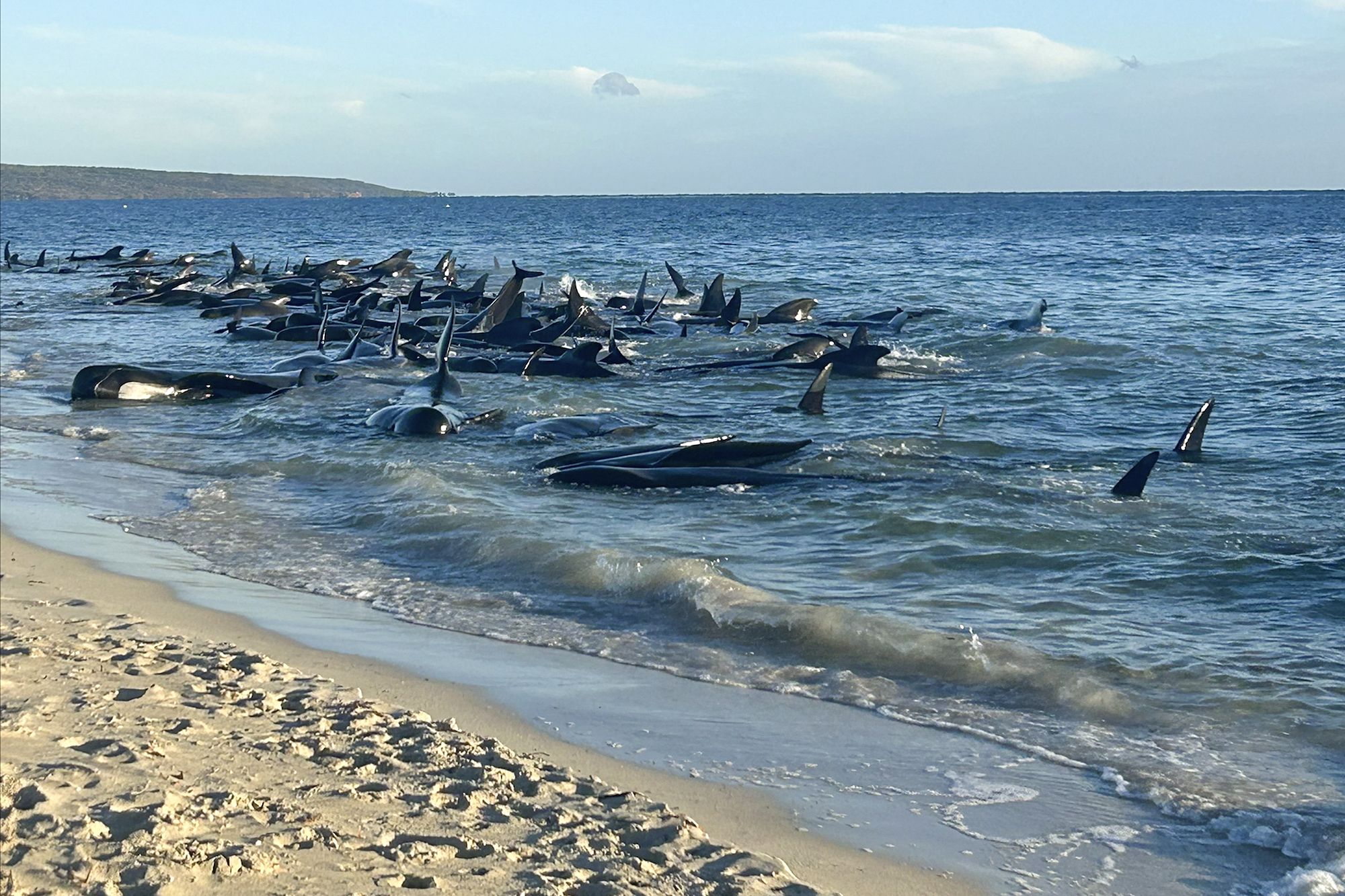As a black football player who was born and raised in St. Petersburg, Bryan Idowu knows all about racism in Russia.
He's dealt with it on the streets and on the field, and could be playing in Russia's World Cup next month for Nigeria.
Idowu, whose Nigerian father came to Russia as a student, made his international debut at left back in November and scored against Argentina. If chosen for Nigeria's World Cup team, he could end up playing Argentina again, and in his hometown.
As a young player for Zenit St. Petersburg, a club with a far-right fan base, Idowu was abused by a supporter while returning from training.
"There's no black in Zenit's colors," he recalls the fan saying. "'What's going on there, and why are you in the kit?' My friend got angrier than I did. I just responded with a smile."
Other locals, however, urged him to become "the first black guy at Zenit." But he ended up leaving the club to find first-team football.
Six weeks ahead of the World Cup, FIFA is investigating Russia over monkey chants aimed at France players during a friendly in March. Last month, the Russian Football Union fined two top clubs, Zenit and Spartak Moscow, for racist chants.
U.S. & World
Idowu, who plays for Amkar Perm, told The Associated Press he's been racially profiled by Russian police — at one stage so often that he and a friend placed bets on the subway on which of them would be stopped and searched. He's also been racially abused twice on the field, and believes fans view monkey chants as a tactic to help their team.
"I think most of them do that to put pressure on a player psychologically, maybe so he doesn't want to keep playing," Idowu said. "It could just be because someone finds it funny. ... Sometimes I'm walking along (the street) and there's five guys, or a guy with his girlfriend, and one of them sees me and makes a joke so his friends will laugh."
Despite the recent cases, Idowu said racist incidents have become less common in the last five years, perhaps because more Russians travel abroad and meet foreigners.
"It's really changed strongly," he said.
Observers who track racism in Russian football say it remains high by European standards but is becoming less blatant.
A few years ago, openly racist statements were common. When another Russian-Nigerian player, Peter Odemwingie, left Lokomotiv Moscow for West Bromwich Albion in 2010, Lokomotiv fans celebrated his departure with a banner reading "Thanks West Brom" with a picture of a banana.
In 2012, after Idowu left the club and shortly after the arrival of Brazilian striker Hulk, one major Zenit fan club published a manifesto calling for an all-white, all-heterosexual team.
These days, more cameras in stadiums plus stricter fines for clubs mean fewer far-right banners. Swastikas haven't been seen at pro games for several years, and the Celtic cross — another symbol for white nationalists — has all but vanished this season after a crackdown.
However, monkey chants remain common, partly because they're harder to track on surveillance systems, said Pavel Klymenko of the FARE Network, which helps UEFA and FIFA investigate discrimination and racism cases. Other fans don't intervene because they are scared of far-right groups, he said.
"It's very easy to get your head hammered in the stands if you publicly disagree with something that's going on," Klymenko said. "The culture of violence and the dominance of the far-right groups with violence is a major problem."
Ahead of the World Cup, there hasn't been enough emphasis on anti-racism education alongside enforcement and sanctions, said Klymenko, who is writing a guide with safety tips for foreign fans.
Speaking last month to the AP, World Cup organizing committee chief executive Alexei Sorokin said soccer racism in Russia was no worse than in "many countries."
"The situation with racism has improved significantly," he said. "It's not depicting the mood of the society."
Russian law enforcement rarely gets involved in soccer racism cases, even when officers are at the stadium in large numbers. When the police are involved, sometimes little is done. When a fan in Samara taunted Brazilian player Roberto Carlos with a banana in 2011, police later announced they found a suspect but the incident wasn't a crime. For the World Cup, police promise a tough response.
Some major clubs' support bases still include organized far-right groups. That includes Zenit, where football tournaments organized among hardcore fans include several teams with names referencing white nationalist ideology. One of the more successful teams is simply called "White Power," with a cartoon mascot in a Ku Klux Klan hood.
For Idowu, international renown has come fast. Used to writing in Cyrillic, he hasn't decided how he prefers his name in the Latin alphabet: Bryan or Brian. The Nigeria Football Federation's website has used both versions.
His Nigeria debut came on Russian soil in the southern city of Krasnodar. As a second-half substitute, Idowu pushed up the left flank to meet a cross from Kelechi Iheanacho and score into the bottom-right corner. Nigeria won 4-2.
"It's hard to express the emotions," the softly spoken Idowu said. "My father was in the stands watching the game. It was doubly pleasant to win the game against opponents like (Argentina). I just can't put it into words."
Football can bring people together, and Idowu hopes the World Cup will change Russia for the better.
"(Russian) people speak with friends from other countries and they go abroad more often and meet people there, and they just become more positive," he said. "The World Cup will help with that."



